22, Dec 2023
Difference Between 2032 And 2025 Battery
difference between 2032 and 2025 battery
Related Articles: difference between 2032 and 2025 battery
- Print Design Trends For 2025: Embracing Innovation And Sustainability
- Footwear Design Forecast: Summer 2025
- 2025 And 2024: A Cinematic Odyssey
- 2025 Lexus RX 350: A Comprehensive Review
- Button Cell Batteries 2025: A Comprehensive Guide
Introduction
In this auspicious occasion, we are delighted to delve into the intriguing topic related to difference between 2032 and 2025 battery. Let’s weave interesting information and offer fresh perspectives to the readers.
Table of Content
Video about difference between 2032 and 2025 battery
2032 vs. 2025 Batteries: Unveiling the Differences
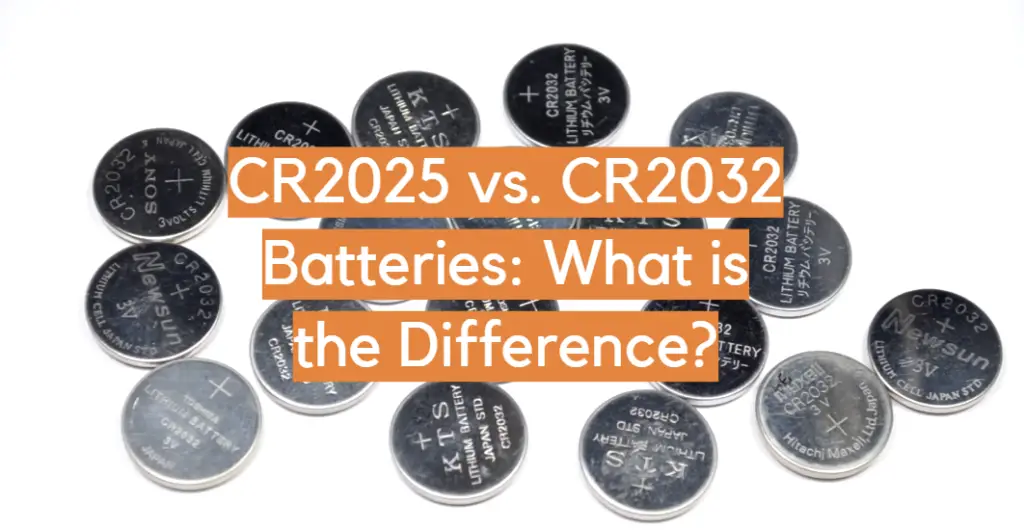
In the realm of electronics, batteries play a pivotal role in powering various devices, from smartphones and laptops to medical equipment and industrial machinery. Among the wide range of battery types available, 2032 and 2025 batteries are commonly used in numerous applications. Despite their similar appearance, these two battery models exhibit distinct characteristics that set them apart.
Size and Shape
One of the most noticeable differences between 2032 and 2025 batteries lies in their size and shape. 2032 batteries are characterized by their coin-shaped, flat design, measuring approximately 20mm in diameter and 3.2mm in thickness. In contrast, 2025 batteries are slightly larger and thicker, with a diameter of 25mm and a thickness of 3.0mm. The larger size of 2025 batteries allows them to accommodate more active material, resulting in a higher energy capacity.
Voltage and Capacity
Another key distinction between 2032 and 2025 batteries is their voltage and capacity. 2032 batteries typically deliver a nominal voltage of 3 volts, while 2025 batteries offer a slightly higher voltage of 3.6 volts. This difference in voltage may impact the compatibility of batteries with certain devices, as some electronic components are designed to operate within a specific voltage range.
In terms of capacity, 2025 batteries generally boast a higher energy density compared to 2032 batteries. The larger size of 2025 batteries enables them to hold more active material, providing a longer runtime for devices. However, it is important to note that the actual capacity of batteries can vary depending on factors such as manufacturer, battery chemistry, and discharge rate.
Chemistry and Construction
2032 and 2025 batteries are primarily based on lithium-ion technology, which offers high energy density, long cycle life, and low self-discharge rates. However, there may be variations in the specific chemical composition and construction of batteries from different manufacturers.
2032 batteries commonly employ a lithium-manganese dioxide (Li-MnO2) chemistry, which provides a stable and reliable performance over a wide temperature range. 2025 batteries, on the other hand, may incorporate a lithium-cobalt oxide (LiCoO2) chemistry, which offers a higher energy density but can be more sensitive to temperature fluctuations.
Applications
2032 and 2025 batteries find applications in a diverse range of electronic devices due to their compact size and reliable performance. 2032 batteries are commonly used in small electronics, such as watches, calculators, and key fobs, where space constraints are a concern. 2025 batteries, with their higher capacity, are often employed in larger devices, such as remote controls, wireless sensors, and medical equipment.
Interchangeability and Compatibility
While 2032 and 2025 batteries share a similar coin-shaped design, they are not directly interchangeable. The larger diameter and thickness of 2025 batteries prevent them from fitting into compartments designed for 2032 batteries. Additionally, the voltage difference between these two battery models may affect the compatibility with certain devices.
Environmental Considerations
Like other lithium-ion batteries, 2032 and 2025 batteries contain hazardous materials that require proper disposal and recycling. It is important to follow local regulations and guidelines for the safe disposal of used batteries to minimize environmental impact.
Conclusion
2032 and 2025 batteries are both versatile and widely used in various electronic devices. While they share a similar coin-shaped design, they differ in size, voltage, capacity, and chemistry. Understanding these differences is crucial for selecting the appropriate battery for specific applications, ensuring optimal performance and compatibility. By carefully considering the size, voltage, capacity, and intended use, users can make informed decisions when choosing between 2032 and 2025 batteries, empowering their devices with reliable and efficient power.
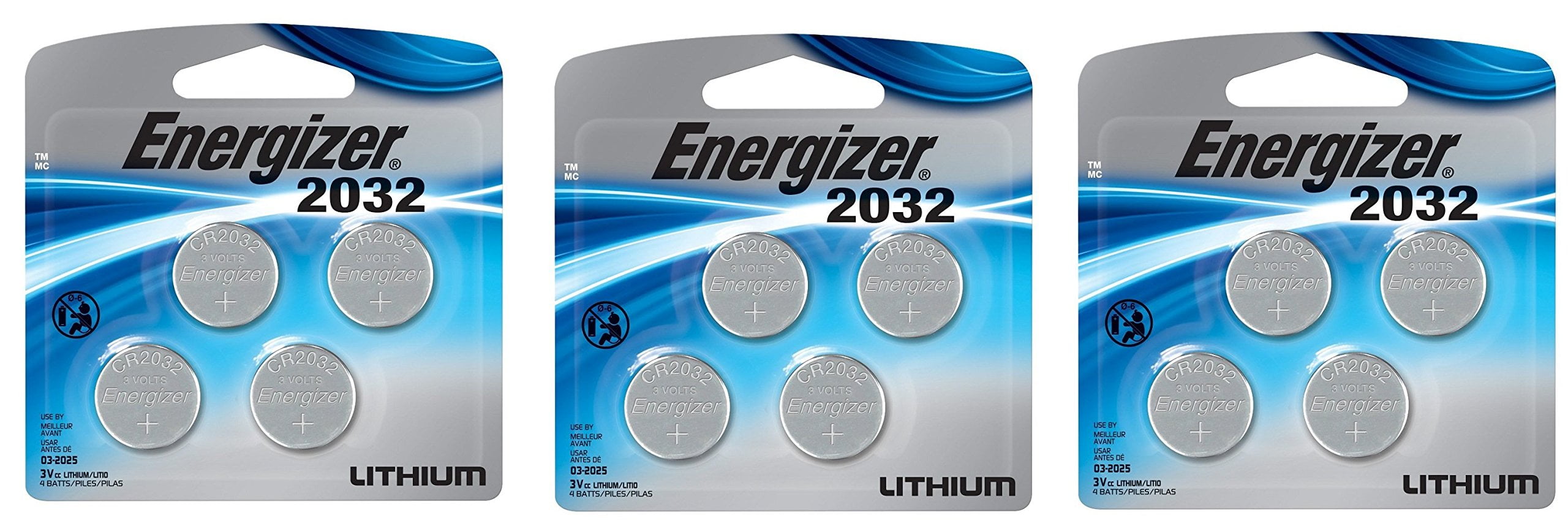
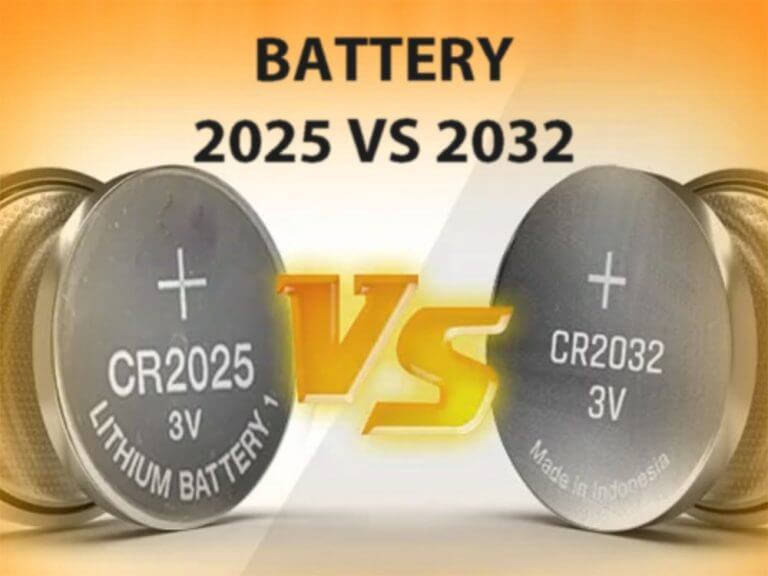
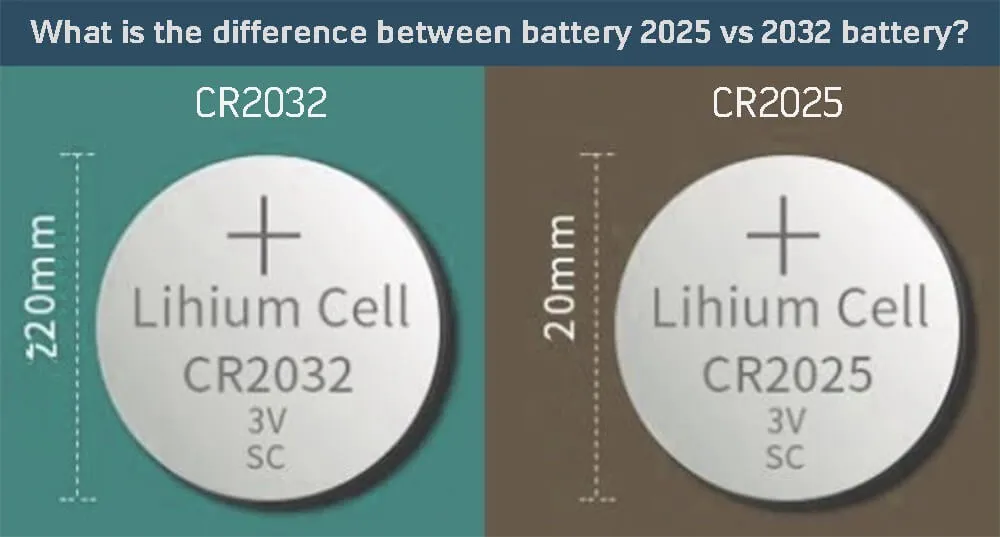
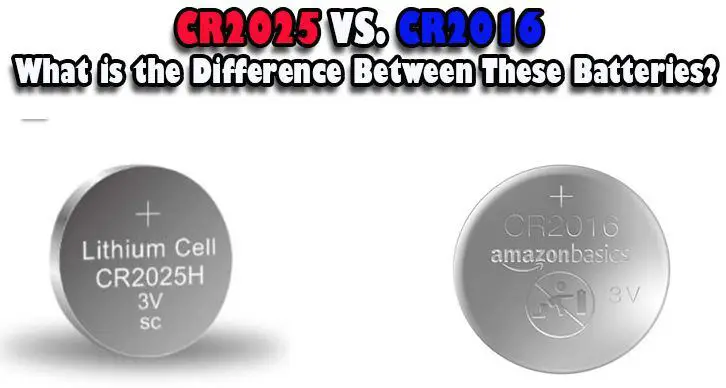
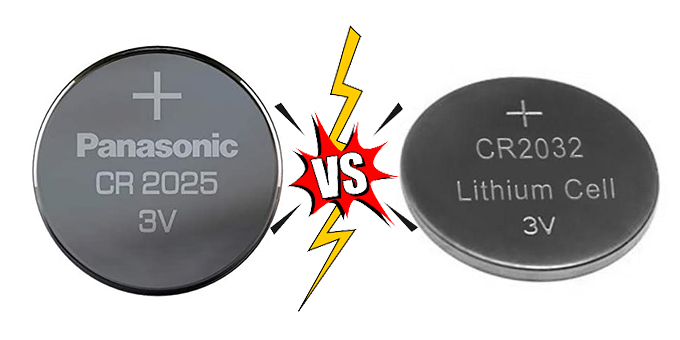



Closure
Thus, we hope this article has provided valuable insights into difference between 2032 and 2025 battery. We thank you for taking the time to read this article. See you in our next article!
- 0
- By admin